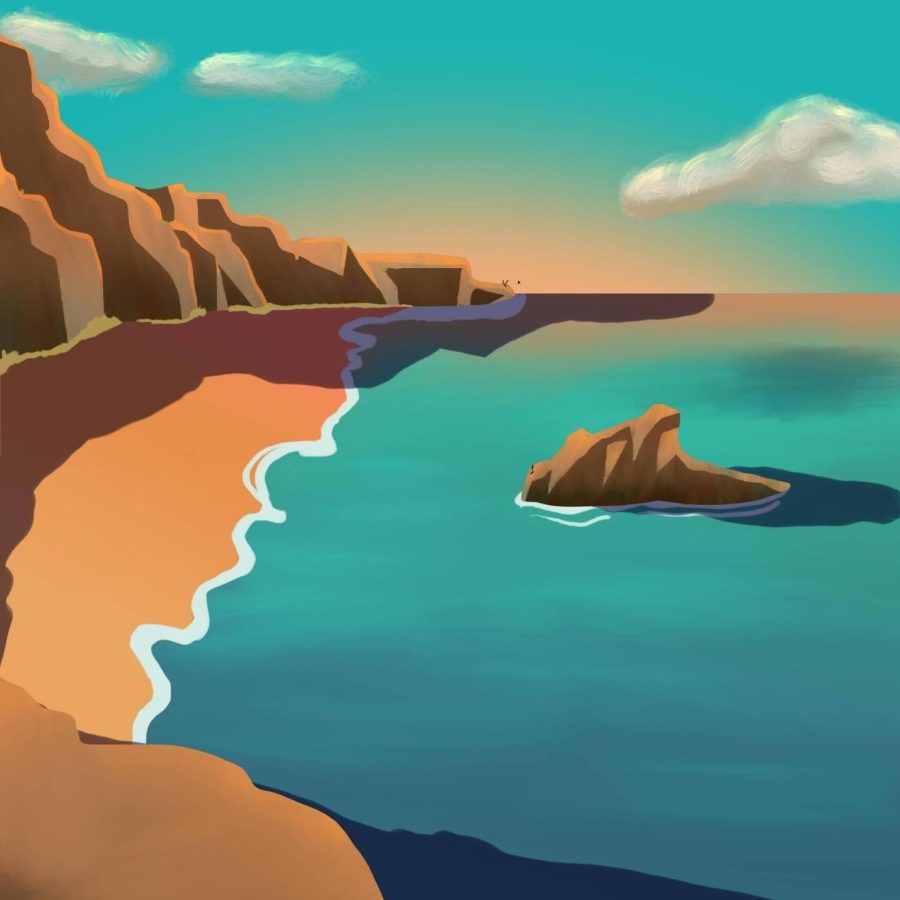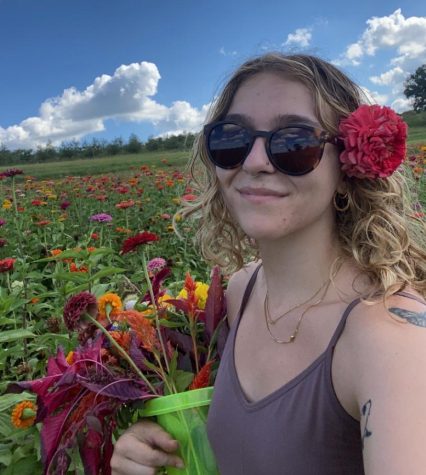Opinion | Comparing my two vacations
August 31, 2022
This summer I traveled to two very different places — Myrtle Beach, South Carolina, and Ojochal, Costa Rica. This was my first time traveling in Central America, so there were many aspects of the trip that were new to me, but as I began to observe my surroundings, I couldn’t help but compare this trip to my other vacation after drawing jarring conclusions about Costa Rica and the United States.
Uvita Beach is one of the four beaches that compose Marino Ballena National Park, a Costa Rican treasure. While visiting this spectacular beach, I noticed many things — new wildlife, palm tree roots that sit feet above the sand, water that unexpectedly rushes in multiple feet within a few minutes at high tide, fog that perpetually loomed over the mountains during my stay and litter scattering the beaches.
If there is one thing I hate in the world, it is litter. Litter makes beautiful things less beautiful and has harms far beyond aesthetic concerns. So, as a response, I clean up what I can. What I noticed that differed between the litter I found at Uvita versus in Myrtle was the size and location.
During my time in Myrtle, I collected many cigarette butts, single-use bottles, plastic straws and plastic food wrappers, mostly where people’s chairs and umbrellas were set up — clearly a product of their carelessness. Meanwhile, in Uvita I found myself mainly picking up microplastics — a product of plastic pollution breaking apart in the ocean and washing onto shores or lingering in water.
Not only did I notice the litter on the beaches, but also in my immediate surroundings. I noticed a general lack of litter lining roadways, inhabiting streams of water and scattered among parking lots in Costa Rica, even as we drove through more populated areas. Thinking back to Myrtle, the streets had plastic grocery bags rolling like tumbleweeds. I found that the people in Costa Rica had a greater commitment to keeping their home clean, and the most polluted places were those where tourists were abundant.
The litter of Myrtle could be the microplastics of Uvita, and that is an unsettling reality to acknowledge.
Another aspect of the trip that remains vastly, significantly different is wildlife and land.
While visiting Alturas Wildlife Sanctuary — a place committed to rehabilitating as many animals as they can and offering lifelong residence in enriching enclosures for those who are unable to be rehabilitated — I was informed that Costa Rica outlawed keeping wild animals as pets and sport hunting of wildlife. As a result, the sanctuary gained some of its residents from people having to turn their wild animals in. Leo’s sweet face, the ocelot gracing the front page of Alturas’ website, happens to be a product of that law. His sister was fortunately released, but Leo opted for the cushier lifestyle of steady meals and an enclosure with many places to perch.
In comparison, the United States has no federal legislation when it comes to keeping wild animals as pets. Sure, most states have made it illegal to privately own wildlife, and the U.S. does have specialized laws that target certain groups of animals and their wellbeing, especially for those that are considered endangered, but the U.S. also has an abysmal record when it comes to protecting wildlife.
“Unfortunately, House and Senate appropriators have made it clear that saving endangered species is not their top priority,” said Stephanie Kurose, a senior policy specialist at the Center for Biological Diversity. This is exemplified by the outrageous law passed in Idaho in 2021 that allows hunters to kill 90% of the state’s wolf population — a species the country has waged unofficial war on, but which made no disruption in the federal government’s concerns. If only the United States was like Costa Rica and would also outlaw sport hunting, maybe native species could thrive and contribute to their ecosystem like they’re supposed to.
Costa Rica has also made massive efforts to reforest the country after logging devastated the country. Today, almost 60% of the land is forested and approximately 28% of the land is protected. This compares to a World Bank estimate that only 33% of the U.S. was forested in 2020 and an abysmal 12% of land is protected.
Traveling is a privilege. Each trip cost me more money than I could necessarily afford in the moment — thanks, credit cards — but it’s something I have wanted to do for so long because I yearn to explore the world. I want to be a global citizen because I think it makes people more empathetic and accepting. My experience will not be the same as yours, but that doesn’t mean we can’t grow as people all the same. I may be able to travel through physical experiences, but that doesn’t mean you can’t through books, movies or music.
Our world is so much bigger than we know, and with only a five-hour flight, I was able to experience life outside of myself and see a world I longed for and could begin to understand.
Grace DeLallo writes about social, environmental and political issues. Write to her at [email protected].









